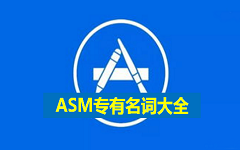The digitization of healthcare has facilitated the sharing and re-using of medical data but has also raised concerns about confidentiality and privacy. HIPAA (Health Insurance Portability and Accountability Act) mandates removing re-identifying information before the dissemination of medical records. Thus, effective and efficient solutions for de-identifying medical data, especially those in free-text forms, are highly needed. While various computer-assisted de-identification methods, including both rule-based and learning-based, have been developed and used in prior practice, such solutions still lack generalizability or need to be fine-tuned according to different scenarios, significantly imposing restrictions in wider use. The advancement of large language models (LLM), such as ChatGPT and GPT-4, have shown great potential in processing text data in the medical domain with zero-shot in-context learning, especially in the task of privacy protection, as these models can identify confidential information by their powerful named entity recognition (NER) capability. In this work, we developed a novel GPT4-enabled de-identification framework ("DeID-GPT") to automatically identify and remove the identifying information. Compared to existing commonly used medical text data de-identification methods, our developed DeID-GPT showed the highest accuracy and remarkable reliability in masking private information from the unstructured medical text while preserving the original structure and meaning of the text. This study is one of the earliest to utilize ChatGPT and GPT-4 for medical text data processing and de-identification, which provides insights for further research and solution development on the use of LLMs such as ChatGPT/GPT-4 in healthcare. Codes and benchmarking data information are available at https://github.com/yhydhx/ChatGPT-API.
翻译:摘要:医疗数字化促进了医疗数据的共享和再利用,但也引发了对保密性和隐私的担忧。美国《健康保险便携性和责任法案》(HIPAA)要求在传播医疗记录之前删除重新识别信息。因此,高效有效的医疗数据去标识化解决方案,尤其是自由文本形式的方案,尤其需要。虽然之前已经开发和使用了各种计算机辅助去标识化方法,包括基于规则和基于学习的方法,但是这些方法仍然缺乏普适性或需要根据不同场景进行微调,从而在广泛使用中施加限制。 大型语言模型(LLM)的进步,例如ChatGPT和GPT-4,已经展示了广阔的应用潜力,特别是在医疗数据的处理和隐私保护任务中,由于这些模型可以通过他们的强大的命名实体识别(NER)能力识别机密信息而进行零样本上下文学习。在这项工作中,我们开发了一种新的GPT4启用的去标识化框架("DeID-GPT"),以自动识别和删除标识信息。与现有常用的医疗文本数据去标识化方法相比,我们开发的DeID-GPT在遮盖未结构化医疗文本的私密信息时表现出最高的准确性和显着的可靠性,同时保留了文本的原始结构和含义。这项研究是最早利用ChatGPT和GPT-4进行医疗文本数据处理和去标识化的之一,为进一步研究和解决方案开发提供了启示。代码和基准数据信息可在https://github.com/yhydhx/ChatGPT-API上获得。





